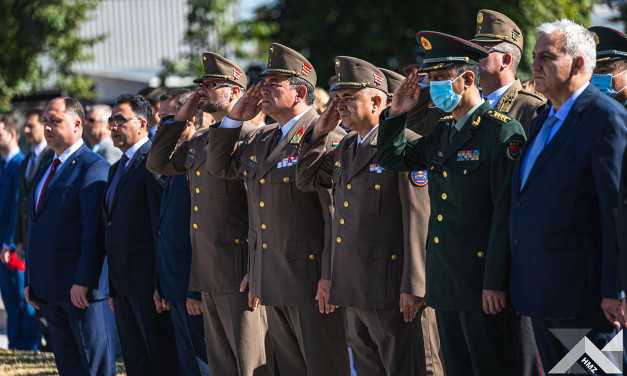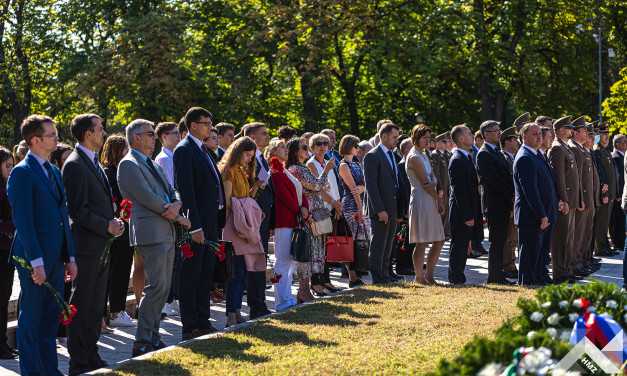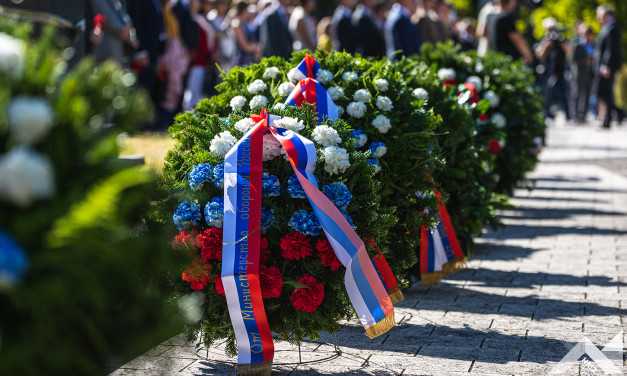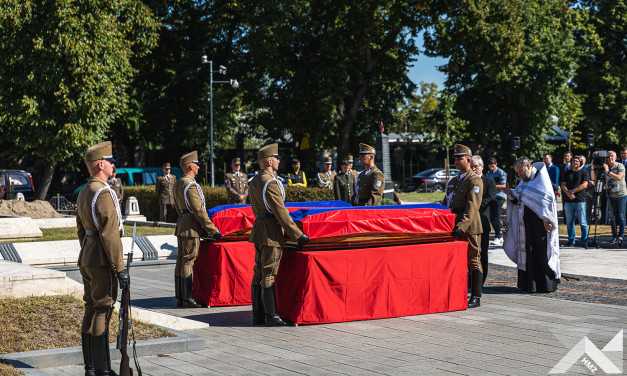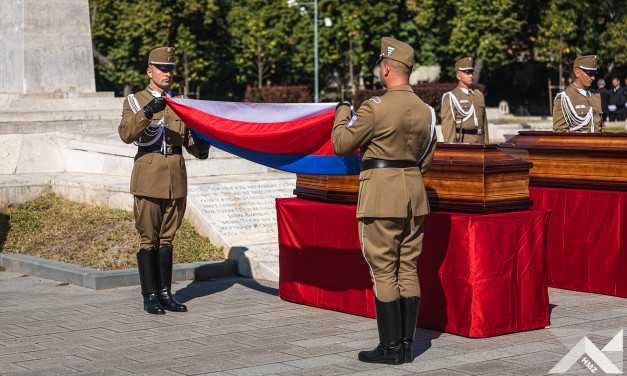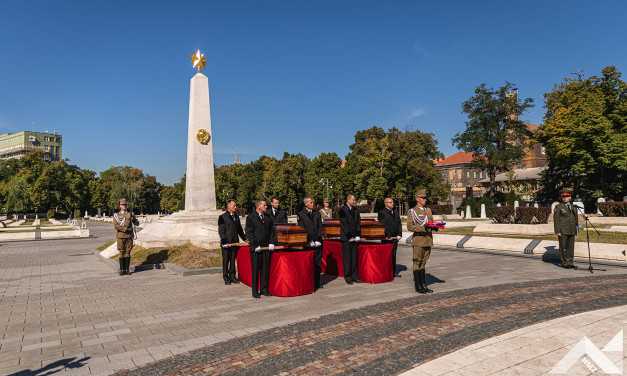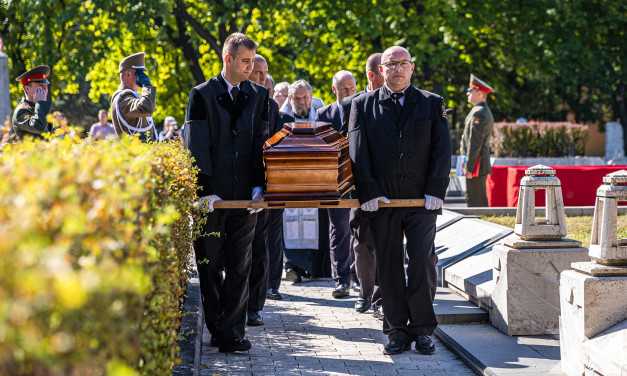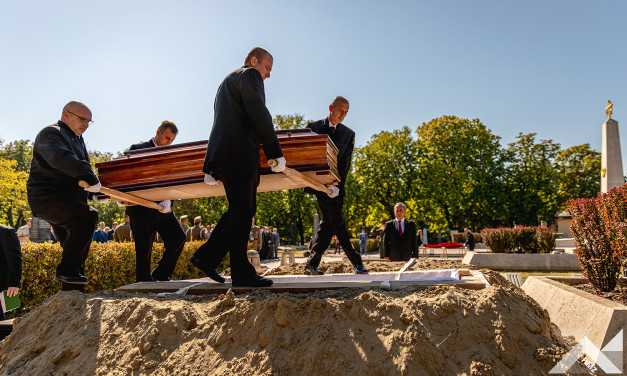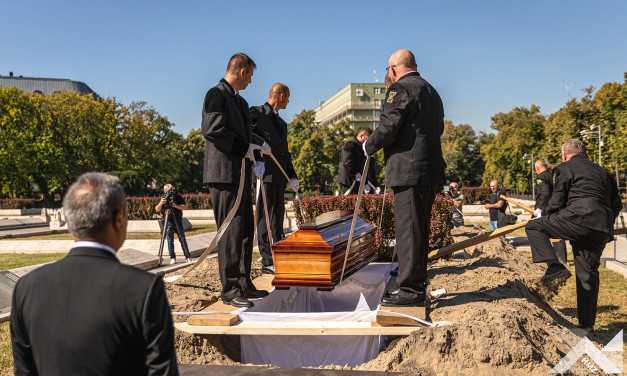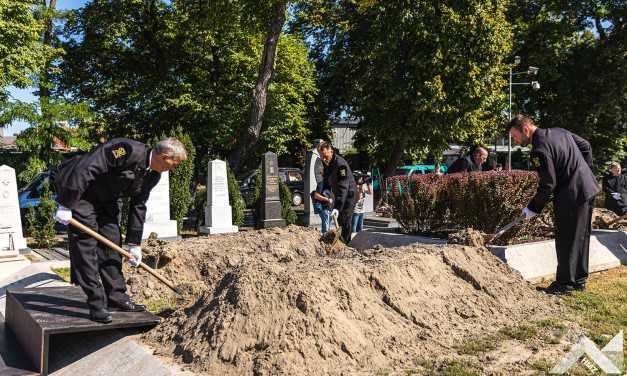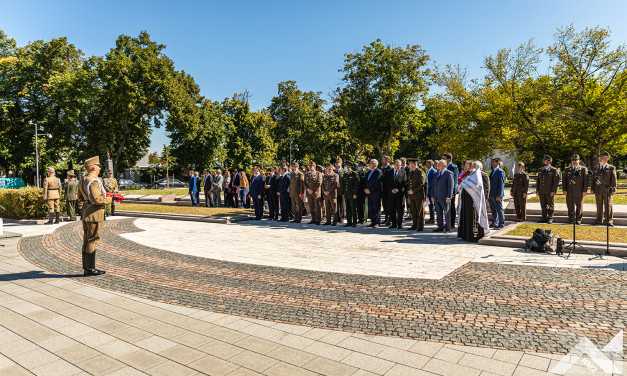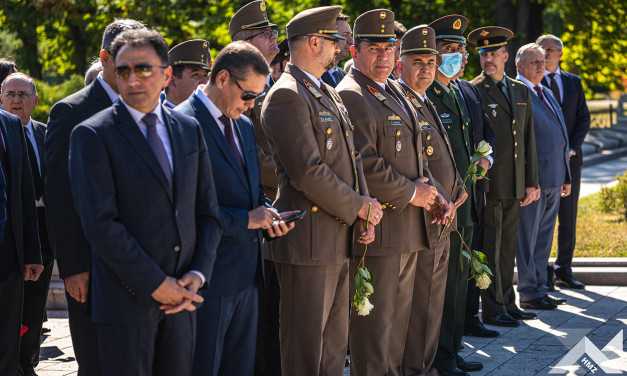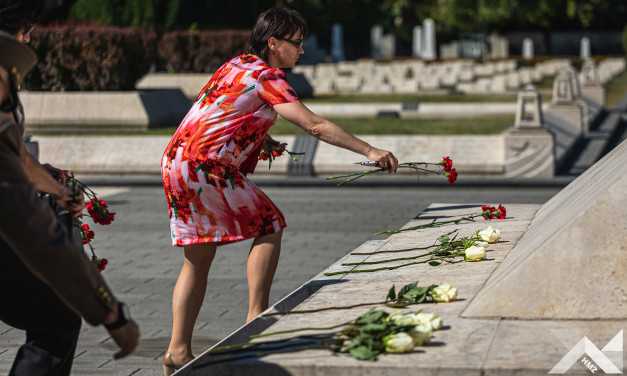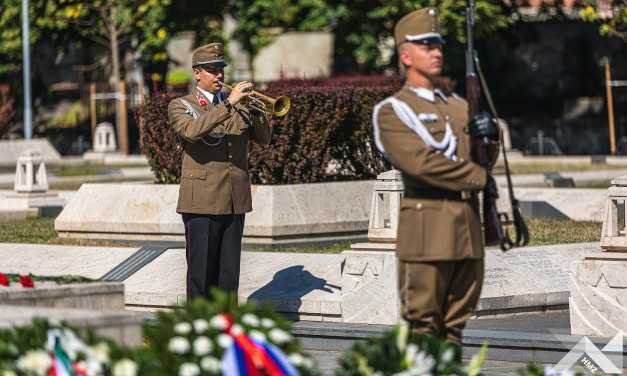Dead Soldiers are no longer enemies
Text: Péter Snoj | Photo: Kinga Szováthy | 16:38 September 13, 2021On Friday, 10 September the mortal remains of 22 Soviet soldiers fallen in Hungary were laid to eternal rest in the Fiumei Road Cemetery, Budapest. Speaking at the ceremony organized by the Embassy of the Russian Federation, Colonel Dr. József András Balogh, Cabinet Chief of the Ministry of Defence called attention to the importance of the war grave care work being done by the two countries.
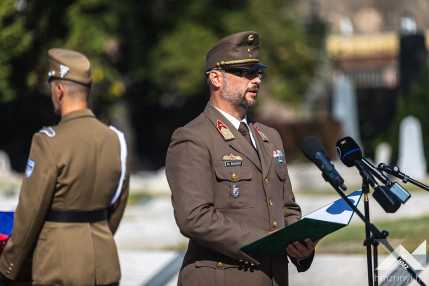
Over the last five years, the mortal remains of altogether 22 Soviet soldiers have been found in the area of nine Hungarian settlements. Speaking at the reburial of the soldiers killed in action in the last years of the Second World War, Col. József András Balogh, Cabinet Chief of the Ministry of Defence said that although we had learnt that the Second World War lasted from 1939 to 1945, this war ended in 2021 for those 22 Soviet soldiers who found their final resting place on this day. “Over the course of history, we were on the same and also on opposing sides, but we can certainly say that today, the Soviet soldiers buried in Hungary and the Hungarian ones buried in Russia are no longer enemies of each other. Dead soldiers are no longer enemies. Once they were young men, but history alone interfered with their lives, taking them far away from their places of birth”, he said.
The MoD Cabinet Chief – who is at once the chairman of the Hungarian section of the joint Hungarian–Russian Intergovernmental War Grave Care Commission – added that for this very reason, paying the last tribute is not an option but an obligation. It is an obligation in the legal sense of the term, too, the Geneva Conventions and the intergovernmental agreement among our countries make it imperative. As he pointed out, “Still, there is something even more important than written law. According to the famous Hungarian author Sándor Márai, behind the written laws there is another, unwritten law, and justice must be served to it, too. The fruitful cooperation between Hungary and Russia in this field is based on the principle of reciprocity.”
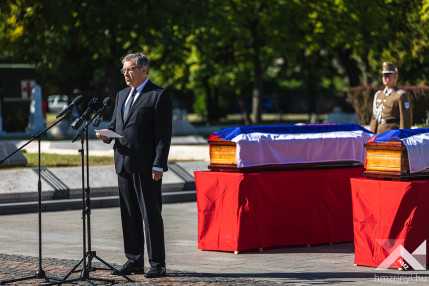
Dr. József András Balogh underlined that he is convinced that this funerary commemoration and political cooperation can only be successful if decision-makers take into account the truth beyond written law and even beyond that, the personal tragedies as well. If they do so, then Albert Schweitzer’s oft-quoted thought will become reality: “The soldiers’ graves are great preachers of peace”.
Speaking at the commemoration – coupled with the reburial of Soviet soldiers found in Budapest, Farád, Halásztelek, Újszász, Kecskemét, Seregélyes, Kaba, Székesfehérvár and Veszprém – Ambassador Extraordinary and Plenipotentiary of the Russian Federation Stanislavov Evgeny Arnoldovich noted that several of the 22 soldiers killed in action had already been identified by name. He expressed his thanks and gratitude for the joint work and the support for the organization of the commemoration to Hungary, the Ministry of Defence as well as to Colonel Dr. József András Balogh and Colonel Dr. Vilmos Kovács, Commander, MoD Institute and Museum of Military History.
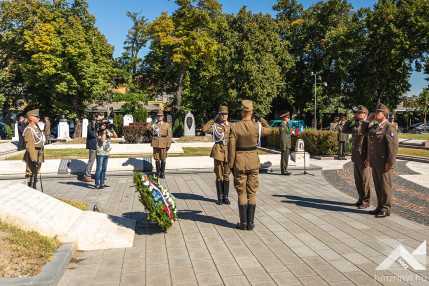
Also present at the event were, among others, the ambassadors and military attachés of Azerbaian, the Republic of Belarus, the Republic of Kazakhstan, the People’s Republic of China, the Republic of Moldova and Serbia. At the end of the commemoration, after the 22 Soviet soldiers’ mortal remains were laid to eternal rest, the participants paid tribute to their memory by laying wreaths and the flowers of remembrance.
Galéria
